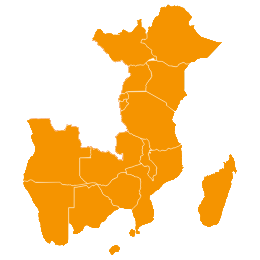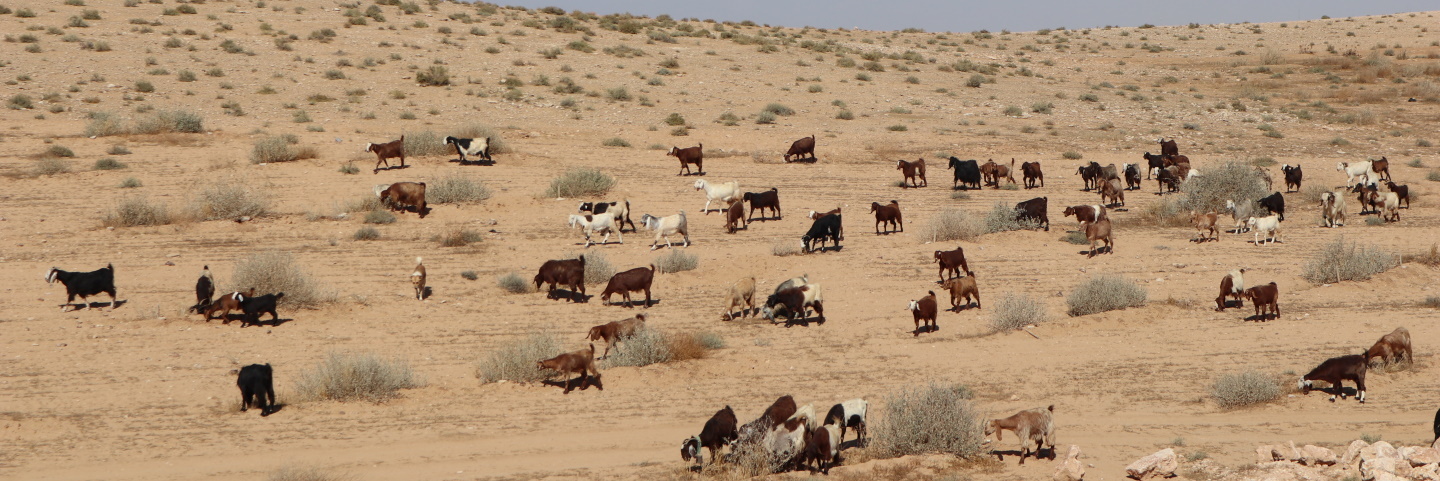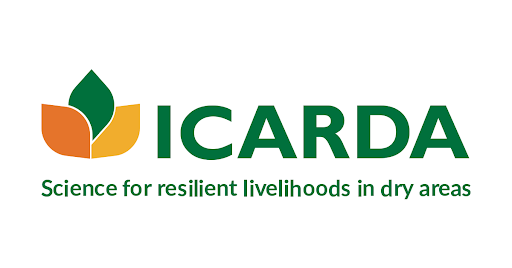Rangeland management
“The Sustainable Rangeland Management toolkit lays out a holistic, multidisciplinary approach for addressing the biophysical and socio-economic trade-offs among different land uses.”
Mr. Mohamed NASRI, ex-Director General of the Office of Livestock and Pastures in TunisiaBACKGROUND
Unsustainable land use is leading to land degradation, a process compounded by additional challenges such as climate change. However, through research and development, ICARDA, ILRI and their partners have been testing approaches that include two integrated components: a social process (using a participatory approach) and technical methods (such as grazing as a targeted restoration tool) adapted to site-specific contexts.
WHAT’S INVOLVED
Overarching practices : The toolkit is oriented around a participatory approach aimed at securing good governance and rational grazing management.
“How-to” illustrations: The toolkit includes sample scenarios and specific examples of interventions.
Indigenous knowledge and modern science : The toolkit affords land managers, extension service providers, pastoralists and agropastoralists opportunities to contribute.
EXPLORE THIS SOLUTION
The Sustainable Rangeland Management toolkit offers:
- A combination of indigenous knowledge and modern science
- A sustainable way to spread land management practices adapted to site-specific contexts

Countries involved
Jordan, Tunisia, Egypt, Tajikistan, Kyrgyzstan, Ethiopia, Kenya
Project partners
International Center for Agriculture Research in the Dry Areas (ICARDA), the International Livestock Research Institute (ILRI), and the International Union for Conservation of Nature (IUCN), Arab Fund for Social and Economic Development (AFESD), International Fund Agricultural Development
Project dates
2014 – 2021
Share this solution
Bookmark this solution
BookmarkShow Full Solution
Summary
The Sustainable Rangeland Management (SRM) toolkit, tested in Tunisia, lays out a scalable, holistic and multidisciplinary approach for addressing the biophysical and socio-economic trade-offs among different land uses. The toolkit helps communities, policymakers and development actors apply key sustainable rangeland management practices to targeted regions. It can play a major role in achieving a neutral level of land degradation, increased forage production and enhanced ecosystem services.
Challenge/Problem
Globally, the land and ecosystem restoration agenda has been dominated by forestry and agroforestry approaches, neglecting other land uses and site-specific approaches. In rangelands, overgrazing, intensive agriculture and urban land expansion are leading to land degradation and the expansion of desertification. These poor management practices are also being compounded by additional challenges such as climate change and population growth. Developing management solutions to safeguard and preserve rangelands is crucial. Numerous development partners have made efforts towards the rehabilitation of rangelands, but their approaches have not been holistic and resulted in unsuccessful outcome. Complicating factors include recurrent droughts, inefficient policies, weak institutional arrangements, unclear land tenure regimes and the loss of indigenous land use knowledge. Many approaches towards rangeland rehabilitation often fail to consider local adoption and sustainability.
However, the International Center for Agricultural Research in the Dry Areas (ICARDA), the International Livestock Research Institute (ILRI) and their partners have been pursuing opportunities for restorative rangeland management. Through both research and development, they have been testing approaches that include two integrated components: the social process (participatory approaches that focus on rangeland governance) and technical methods (that incorporate site-specific set of tools and protocols).
Solution
The SRM toolkit integrates indigenous knowledge and state-of-the-art science to provide guidance on strengthening rangeland restoration and governance. Since the toolkit takes into account site-specific factors, it relies on local knowledge and can be flexibly scaled across dry areas. This information resource is expected to contribute significantly to ensuring the sustainable management of rangelands ecosystem services and achieving a neutral level of land degradation. The solution emphasizes two overarching practices: rational grazing management and a participatory approach aimed at securing good governance. It also includes instructional illustrations using specific examples. ICARDA and its partners can deploy trainings to implement the toolkit in communities.
The SRM toolkit provides a holistic approach to managing rangeland restoration by recommending land and resource tenure arrangements and institutional models to enhance land management. For example, the toolkit advises on when and where to use certain practices such as soil scarification, reseeding and rational grazing. Thus, at a later stage, it may help guide not only livestock policy but also technology and investment priorities for programs, development agencies and decision makers.
By bringing together their respective expertise, three institutions – ICARDA, ILRI, and the International Union for Conservation of Nature (IUCN) – have been working with national partners such as the Arid Land Institute and Office of Livestock and Pastures in Tunisia to develop a rangeland restoration toolkit that aims to compile the current knowledge of sustainable rangeland management practices in dry areas.
Results
The SRM toolkit is expected to render the following results:
- Positive feedback: In Tunisia, the Office of Livestock and Pasture has already sensed the positive impact of grazing management, producing biomass (forage) during a favourable year when previously unavailable, benefiting local communities, rangeland health as well as animals.
- High impact expectations: The SRM toolkit has the potential to impact over 1 million hectares. The projected results include better management and restoration of rangelands in dry areas, where demand for accessible and productive land is increasing.
- High adoption expectations: The solution has a high chance of adoption thanks to the inclusion of indigenous knowledge and the appreciation from local community of the flexibility to adjust grazing strategies based on climatic conditions differing from year to year. Thus, in 2020, initiated its adoption thanks to change in procedure (modified contract between administration and farmer) helping boost adoption.
- Climate-resilient results: The SRM toolkit enables rural people to increase their resilience to climate change and other shocks.
- Improved management: The solution can lead to better management and restoration of rangelands in dry areas.
Lessons Learned/Potential for replication
The potential to scale up the SRM toolkit is high in the Middle East and North Africa, sub-Saharan Africa and Central Asia. The SRM practices developed under the toolkit have been implemented across countries. For example, in the drylands in Jordan where the Badia Restoration Programme takes place, soil seed banks have trouble growing because the soil surface is compacted and crusted. There are practices within the toolkit that address this issue. When the soil seed back is depleted, direct seeding using a combination of practices such as different species and seed treatments enhances the results. For sustainable rangeland management, it is important to use a holistic, bottom-up participatory approach that includes local pastoral communities; otherwise efforts can be lost. Thus, it is essential to adapt the tools to a particular ecosystem including its inhabitant. The potential for replication is high as the SRM toolkit combines different methods that are fit for different scenarios.
Next Steps
The IUCN is ready to distribute the toolkit in West Asia and sub-Saharan Africa. In Tunisia, the national agency for rangeland rehabilitation has requested ICARDA’s technical backstopping to implement a sound grazing management as part of an IFAD-funded project in southern Tunisia. At the global level, with IUCN’s Land Degradation Neutrality process and the UN Decade on Ecosystem Restoration now directing significant attention to rangelands, the time is ripe to reach a wider audience and scale up the solution regionally and globally.
Last update: 25/05/2021



